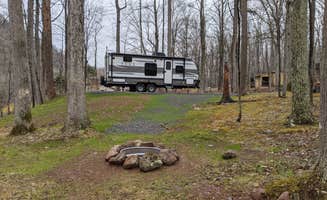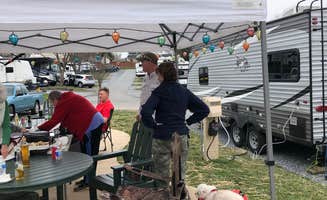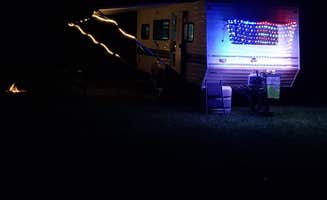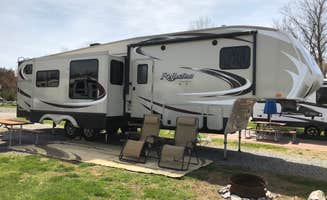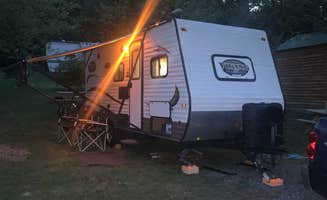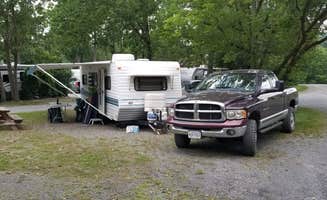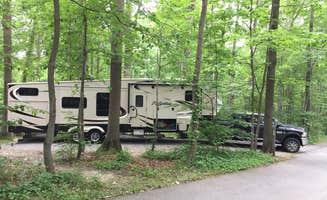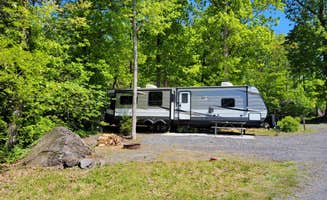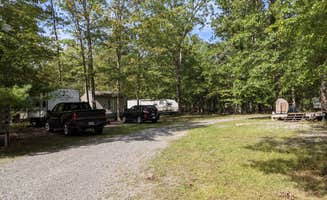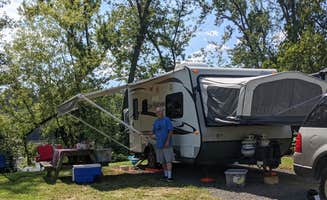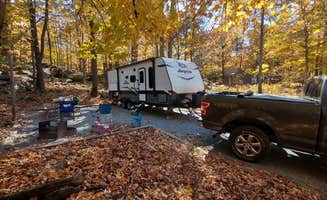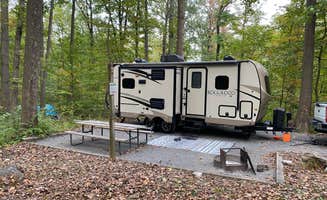RV parks in Hedgesville, West Virginia provide easy access to both the Potomac and Shenandoah Rivers while sitting at elevations between 400-600 feet. The camping area spans the eastern panhandle region where West Virginia's mountainous terrain begins to level out into the Shenandoah Valley. Winter temperatures regularly drop below freezing from November through March, making seasonal campground closures common throughout the region.
What to do
River activities: Brunswick Family Campground offers direct Potomac River access with a boat ramp. "The river is beautifully clean clear and cool. There wasn't much late night going on it seemed all the campers for the most part we're turned in by 11," notes Brian S. The campground sits at the end of a road between railroad tracks and the river.
Historical exploration: Gettysburg Campground serves as a convenient base for battlefield tours. "It's a few minute drive to historic Gettysburg. It's nice and out of the way of the busy parts of town," explains Brandon W. Many campers use this location as a hub for exploring the National Military Park just minutes away.
Hiking options: The C&O Canal towpath runs adjacent to several campgrounds, offering miles of flat hiking and biking trails. "From there you can grab a bite, visit the history of Harper's Ferry or continue exploring more hiking trails," says Maggie A. about trails accessible from Harpers Ferry Campground. Trail access varies seasonally based on weather conditions.
What campers like
Riverside views: Many campsites offer direct water access. "Amazing sites right on the Potomac. There is a Ale House above the office that delivers for free to your site (2.5 miles away), just tip the driver," shares Eric J. from Harpers Ferry Campground. Riverside sites typically cost $5-10 more per night than standard sites.
Swimming options: Several campgrounds maintain pools during summer months. "The pool with the slide was very clean," notes Sabrina H. about Drummer Boy Camping Resort. Pools typically operate from Memorial Day through Labor Day, with some closing on weekdays during shoulder seasons.
Wooded settings: Tree cover provides natural shade at several campgrounds. "Trees lined the sides of our site which was nice for privacy and shade but the site was really narrow which didn't leave much room for a patio to sit outside with our friends," explains Nancy W. about Drummer Boy. Tree coverage varies significantly between campgrounds and specific site sections.
What you should know
Train noise: Several campgrounds sit near active rail lines. "The proximity to the tracks means that if the sound doesn't wake you up, the rumbling ground will. Every hour through the night," cautions Sherri C. about Harpers Ferry. Earplugs are recommended for light sleepers at most riverside campgrounds.
Limited water hookups: Water access points are sometimes shared between sites. "Water and electric are in award spot on our site," notes Alice G. about Round Top Campground. Extra water hose length (50+ feet) may be needed at certain sites.
Road noise concerns: Some campgrounds experience highway sounds. "Unbearable road noise. Reserved for 5 nights but left after one. Literally a couple hundred yards from 4-lane highway with nothing to block the sound," reports Gabe about Nahkeeta Campsite. Sites further from main roads typically provide quieter experiences.
Tips for camping with families
Water activities: For families with children, water features rank highly. "We enjoyed hours hanging out there. They had activities for kids. Everyone seemed to be polite and helpful as far as the staff was concerned," reports Jeremy K. about the pool at Yogi Bear's Jellystone Park. Water parks typically operate Memorial Day through Labor Day.
Playground access: Check which campgrounds maintain play equipment. "Really a nice campground with great hosts. Only complaint is the closeness of other sites, luckily no one else was around," notes Jennifer K. about Little Orleans Campground. Many playgrounds lack shade, so morning or evening use is recommended during summer.
Organized activities: Weekend events often cater to families. "The campground usually puts on various activities, parties, etc, mainly kid oriented. This is a nice site/area for base camping in the fall," explains Dave G. Activity schedules typically posted at camp stores or online before arrival.
Tips from RVers
Site leveling: Many regional campgrounds feature sloped terrain. "We ran out of blocks trying to level on this site and were still off a bit. If we were staying more than a night we may have asked for a different site," advises Jennifer K. about Little Orleans Campground. Extra leveling blocks recommended for most sites in the region.
Pull-through availability: Some parks offer easier access sites. "A perk for us for our first trip with a camper was the pull thru sites," notes Amy about Jellystone Park. Pull-through sites typically cost $5-15 more than back-in options and sell out first during peak season.
Seasonal considerations: Off-season camping brings both benefits and drawbacks. "Better than OK. Stayed for 2 days while passing through from FL to NH. Off-season so not crowded. Pool was clean and quite good sized, had it to ourselves due to season," shares John L. Most campgrounds reduce staff and amenities during shoulder seasons (April-May and September-October).


